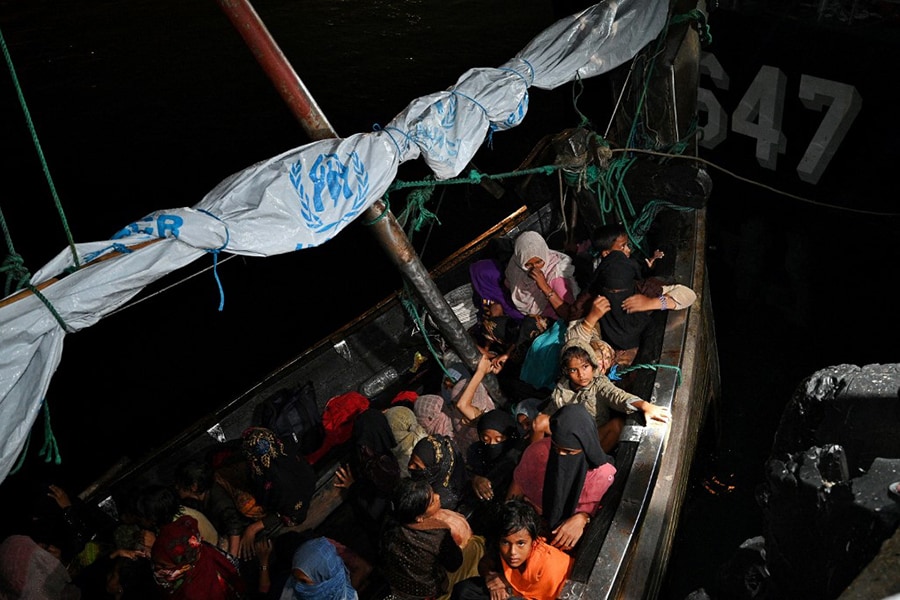
US says Myanmar committed genocide against Rohingyas
Hundreds of thousands of the mostly Muslim Rohingya community have fled Buddhist-majority Myanmar since 2017 after a military crackdown that is now the subject of a genocide case at the United Nations' highest court in The Hague
 Rohingya refugees sit on a wooden boat after their were rescued by Indonesia's navy in the waters off Bireuen, upon their arrival to Krueng Geukueh port in Lhokseumawe, on the north coast of Aceh province on December 31, 2021. - Indonesia's navy rescued more than 100 Rohingya migrants traveling in a wooden boat, bringing them to safety early December 31, 2021 morning following pressure from locals. (Credit: CHAIDEER MAHYUDDIN / AFP)
Rohingya refugees sit on a wooden boat after their were rescued by Indonesia's navy in the waters off Bireuen, upon their arrival to Krueng Geukueh port in Lhokseumawe, on the north coast of Aceh province on December 31, 2021. - Indonesia's navy rescued more than 100 Rohingya migrants traveling in a wooden boat, bringing them to safety early December 31, 2021 morning following pressure from locals. (Credit: CHAIDEER MAHYUDDIN / AFP)
Washington, United States: The US has determined that the violence against the Rohingya minority committed by Myanmar's military amounted to genocide and crimes against humanity, an official told AFP Sunday.
Hundreds of thousands of the mostly Muslim Rohingya community have fled Buddhist-majority Myanmar since 2017 after a military crackdown that is now the subject of a genocide case at the United Nations' highest court in The Hague.
US Secretary of State Antony Blinken is due to officially announce the decision to designate that crackdown a genocide in remarks at the Holocaust Museum in Washington on Monday, where an exhibit on "Burma's Path to Genocide" — using a former name for the country — is on display.
Blinken said in December last year during a visit to Malaysia that the United States was looking "very actively" at whether the treatment of the Rohingya might "constitute genocide."







